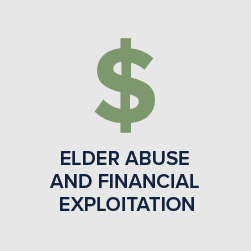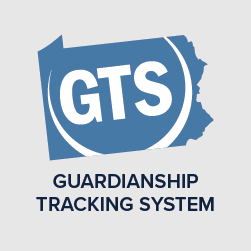Alternatives to Guardianship
Alternatives to Guardianship
-
Advance Directives, Health Care POAs, and Health Care Representatives
Summary
Every capable adult has the authority to make their own medical decisions. However, it is important to plan for illnesses and injuries that may result in incapacity and an inability to communicate your decisions. Every person can plan ahead to name health care decision-makers to make decisions for them when they are unable to make or communicate decisions, and to provide guidance about what types of medical care they want or do not want. The advance planning documents described below should be prepared and signed prior to any illness or injury that may result in an inability to communicate your own decisions. People who do not sign advance directives may still have a person available to make health care decisions for them when they are unable to communicate their own decisions, as family members (or a close friend who knows your preferences and values) may make health care decisions when you are not able to do so.
Advance Directives for Health Care Decisions
Advance directives are legal documents that provide instructions for medical care decisions when a person cannot make or communicate their own wishes. The most common health care advance directives are Living Wills, Health Care Powers of Attorney (POA), Physician Order for Life Sustaining Treatment (POLST), and Mental Health Advance Directives. Advance directives must be written and signed prior to incapacity.
- Living Will
A living will is a legal document that informs doctors about your preferred treatment options regarding lifesaving or prolonging treatment decisions if you become unable to make or communicate your decisions.
- Health Care POA
A Health Care Power of Attorney (POA) is a written authorization granting another person (known as an agent) the power to make health care decisions on their behalf. The individual authorizing the agent to act on their behalf is called the principal or grantor of the POA. A Health Care POA designates an agent to make health care decisions for the principal if they are unable to communicate their wishes. Agents under Health Care POAs can make decisions on the principal’s behalf regarding both routine medical care and end-of-life care and the details of authority may be specified in the Health Care Power of Attorney. The agent should be familiar with the principal’s values and take them into consideration when making a decision.
- Physician Order for Life Sustaining Treatment (POLST)
A POLST is a document created by a doctor to communicate a patient’s preferences regarding end-of-life medical care decisions when that patient has a terminal illness. The form requires the signature of both the doctor and the patient or the patient’s “surrogate” decision-maker. If a patient decides to create a POLST with their doctor’s help, the form stays with the patient and a copy is entered into the individual’s medical record in case they need emergency care or become incapacitated. The form may be voided and revised as a patient’s circumstances or preferences change.
- Mental Health Advance Directive and Power of Attorney
Under Pennsylvania law, a person may sign a Mental Health Advance Directive and Power of Attorney to provide specific guidance regarding what treatments, medications and what specific medical providers and institutions the person would prefer to use for treatment in a mental health crisis. The person may appoint someone (an agent) to make health care decisions concerning mental health for those times when the person (principal) may be unable to make or communicate mental health care decisions.
Health Care Representatives
Under Pennsylvania’s Health Care Agents and Representatives Act, an adult who is not able to make or communicate his or her own decisions and who has not named an agent under a Health Care Power of Attorney may have health care decisions made by a Health Care Representative. Family members will make decisions together as Health Care Representatives for someone who is unable to make and communicate their own health care decisions. The law defines an order of priority among family members who have authority to make health care decisions: (1) Spouse together with adult children who are not the children of the spouse have the first priority; (2) all adult children are next, followed by; (3) parents; (4) adult brothers and sisters; and (5) adult grandchildren; or (6) other adults, e.g. friends or partners, who know your preferences and values.
Resources and Sources
- Advance Planning Basics: An Overview for Advocates (pstrapiubntstorage.blob.core.windows.net)
- Living Will - WellSpan Health
- Who will make treatment decisions you if you cannot make them for yourself (upenn.edu)
- Advance Care Planning: Advance Directives for Health Care | National Institute on Aging (nih.gov)
- HealthCareRepresentativesFEB2018.pdf (disabilityrightspa.org)
- Search for DHS Pages and Documents | Department of Human Services | Commonwealth of Pennsylvania
- PA POLST Form
- Frequently Asked Questions about Advance Directives (upmc.com)
- Advance-Planning NCLER Resource PDF
- Thinking Ahead Roadmap PDF
-
Supported decision making
Supported Decision Making (SDM) is an alternative to guardianship which allows a person with diminished capacity due to a disability to make choices concerning their life with support from an individual or a team of people that they choose and trust. Just as somebody may seek an opinion from a friend on the best mechanic to go to, or best plumber to hire, an individual living with a disability can seek out assistance in making decisions about living arrangements, health care, etc. from their friends, family, or any other trusted individual. Sometimes people create a written SDM agreement, while others establish an SDM agreement more informally without a written agreement. Pennsylvania does not currently have a statute specifically recognizing the enforceability of a written SDM agreement; however, Pennsylvania law does recognize that a person may not need a guardian when family or community supports can assist an individual living with a disability to make their own decisions.
To establish SDM, the person in need of help should work with a trusted friend, family member, or professional to identify the areas in which they need assistance and who would be the best person(s) to help them make those decisions. In Pennsylvania, a formal drafted agreement is not necessary, with SDM agreements ranging from formal drafted documents to informal support groups.
Summary
Supported decision making may be appropriate for you if you have a loved one who is living with a disability and struggles making certain decisions. SDM allows the person to retain the ability to make decisions themselves with the support of trusted individuals instead of having their decision-making rights transferred to a guardian.
Resources and Sources
- Finding the Right Fit: Decision-Making Supports and Guardianship
- Less Restrictive Alternatives to Guardianship Bench Card
- Supported Decision-Making | National Resource Center (supporteddecisionmaking.org)
- About Supported Decision-Making - Supported Decision-Making (supporteddecisions.org)
- https://thearcpa.org/wp-content/uploads/2022/06/Supported-and-Substitute-Decision-Making-for-Arc-of-PA-AP-Conference-2022.pdf
- ACLU Supported Decision-Making PDF
-
Mental health power of attorney
Pennsylvania's law allows you to make a Mental Health Declaration, a Mental Health Care POA, or a combined Mental Health Document. This lets you make decisions about some things, but also lets you give an agent power to make other decisions for you. You must notify your mental health care provider of the existence of such a Declaration, Power of Attorney, or combined Mental Health Care document.
Mental Health Power of Attorney (POA)
A Mental Health POA allows you to designate a trusted person, called an agent, to make treatment decisions for you in the event of a mental health crisis. A Mental Health POA provides the agent flexibility to deal with a person’s mental health situation as it occurs to get them the help they need.
Mental Health Declaration
A mental health declaration outlines an individual’s preferences for specific types of treatment, such as their preferred treatment facility and medication preferences. Outside of mental health treatment preferences, declarations can also include certain other instructions as authorized by law.
Summary
A mental health document may be beneficial for you if you have a diagnosis that can lead to deteriorated mental health, a history of mental health issues, or if you want to designate someone to make mental health decisions if you are unable to do so. You must make a new one or amend your current one every two years unless you are uncapable of making a Mental Health POA or Declaration at the time your current one is set to expire.
As with all important decisions concerning your care, you should always consult with your attorney before taking any action.
Resources and Sources
- CCSDM-7E.pdf (disabilityrightspa.org)
- Instructions Forms - English.pdf (pa.gov)
- Mental Health Advanced Directives – Mental Health Association in Pennsylvania (mhapa.org)
-
Financial POA alternatives to guardianship
Durable Financial Power of Attorney
A Power of Attorney (POA) is a written authorization granting another person (also known as an agent) the power to act on behalf of them in personal or legal matters. The individual authorizing the agent to act on their behalf is called the principal or grantor of the POA. A POA specifically defines aspects of the principal’s life on which the agent will have decision-making power.
In Pennsylvania, a POA is presumed durable unless stated otherwise. A Durable POA is effective immediately upon signature of all parties and stays in effect unless withdrawn or a guardian is appointed.
A durable financial POA designates an agent to make financial, legal, and/or business decisions on behalf of the principal in the event they are unable to communicate their wishes. A durable financial POA can also be extended to cover an individual’s tax filing requirements, applying for government benefits, and managing bank accounts.
Springing POA
A POA that is triggered upon a certain event or condition, such as incapacity, is often referred to as a springing POA. For example, a springing POA “springs” into becoming effective if a person is in a major car accident and becomes incapacitated.
Resources and Sources
- https://www.consumeraffairs.com/legal/durable-power-of-attorney.html
- https://www.legalzoom.com/articles/power-of-attorney-requirements-in-pennsylvania
- Financial Advocate Tasklist PDF
- Tips to Protect Investments and Retirement Income
- Fillable Financial Inventory Sheet
-
PA ABLE alternatives to guardianship
The Pennsylvania ABLE Savings Program (PA ABLE) provides an individual with a qualifying disability a tax-advantaged way to save or invest without impacting their government benefits. All federal benefits including Medical Assistance (Medicaid), Supplemental Security Income (SSI) benefits (with some exceptions) and many Pennsylvania state benefits are protected from being impacted by financial investments or savings in a PA ABLE account.
An ABLE account is a financial account that is opened by, or for, an individual with a qualifying disability. Money deposited into an ABLE account can be used for qualified expenses such as education, housing, transportation, and any other qualified expenses listed on the PA ABLE website (paable.gov). These accounts allow a designated fiduciary to manage the funds. PA ABLE accounts are a cost-effective option that allows those with less savings to avoid the expenses associated with a trust.
Qualifying Disability Information:
A person is eligible for a PA ABLE account if they have a qualifying disability demonstrated by one of the following:
- Entitlement to Supplemental Security Income (SSI) or Social Security Disability Insurance (SSDI) benefits based on blindness or disability; or
- Self-certification of a similarly severe disability, if not entitled to SSI or SSDI. Demonstrated by the following:
- Blindness as defined by the Social Security Act (SSA); or
- A medically determinable physical or mental impairment with marked and severe function limitation that has lasted, or is expected to last, at least 12 continuous months or result in death; and
- Have a written disability-related diagnosis signed by a physician.
The qualifying disability must have started prior to age 26.
Resources and Sources
-
Joint bank account alternatives to guardianship
A joint bank account is an account that is shared with another individual for various reasons such as convenience in paying bills, depositing funds, or as an estate planning tool. A joint bank account acts like a normal bank account (checking/savings), however the main difference is that both individuals who own the account have control over it. When used properly, these accounts can be used as an alternative to guardianship because the original owner maintains ownership and use, while the joint owner can monitor and manage deposits, withdrawals, bill payments, etc. Co-mingling of funds between the person in need of assistance and their trusted individual should be avoided to prevent any disputes over the ownership of the funds in the account.
Joint Bank accounts allow the individual to keep a level of autonomy by still being involved in managing their finances while allowing the trusted individual to make sure bills are paid on time, monitor expenses, and work with the bank if there are any concerns identified.
It is important to consider the risks involved with opening a joint bank account. Joint bank accounts provide an opportunity for financial exploitation as the co-owner of the account can withdraw funds from, and enter into transactions concerning the account whenever they please. If the relationship between the account owners becomes strained, the funds may be subject to disputes over who has rightful ownership of the funds. Finally, joint bank account funds can be subject to creditors, bankruptcy involvement, and other court intervention of a co-owner under certain circumstances.
Joint bank accounts are not recommended if an individual has a guardian, as a guardianship or representative payee account should be created.
As with any financial decision, you should always consult with your own attorney before making an important decision, such as adding a co-owner to your bank account.
Resources and Sources
- https://www.bankrate.com/banking/what-is-a-joint-bank-account/
- https://www.usbank.com/financialiq/manage-your-household/personal-finance/Understanding-guardianship-power-attorney-banking.html
-
Special needs trusts
A special needs trust, also known as a "supplemental needs trust", is an estate planning tool that enables a person living with a disability (also referred to as the beneficiary) to receive financial support without negatively affecting any income-based government benefits they’re receiving, like Medicaid or Supplemental Security Income (SSI). Because government benefits have income and asset limits, receiving financial gifts or assets could reduce or eliminate eligibility. The individual who is identified to manage the special needs trust is referred to as the trustee. It is important to note that a statutory Special Needs Trust created with the funds of the disabled beneficiary must be created and funded prior to the beneficiary’s 65th birthday.
Special needs trusts are intended to be used to purchase goods and services not covered by public benefits. Some examples are:
- Medical costs that are not covered by Medicaid or Medicare, such as some dental care and special therapies
- Service animals and some assistive technology expenses
- Computers, phones, and other communication devices
- Family trips and other recreational activities
- Car insurance
Benefits of a Special Needs Trust include:
- The beneficiary can still receive needs-based government benefits
- Funds can be added by other individuals and family members
- The beneficiary has control over who inherits the trust when they die
- Provides protection against financial abuse, as trustees have a fiduciary duty to act in the beneficiary’s best interest
A special needs trust may be of interest if the person:
- Has an identified beneficiary who they would like to set aside money for; and
- Receive government benefits (Supplemental Security Income, Medicaid, etc.); and
- Receives an income/financial assets
For more information on, or to establish, a special needs trust, contact a lawyer specializing in financial management.
Resources and Sources
- Special Needs Trusts | The Arc's Center for Future Planning
- Special Needs Trust Definition and How it Works - NerdWallet
-
Social Security/VA
Social Security Representative Payee
The Social Security Administration’s Representative Payment Program is a way for family members, friends, or a qualified organization to manage Social Security or SSI payments on behalf of beneficiaries who are incapable due to a disability. The primary duty of the Representative Payee is to provide oversight to ensure that the funds received by the Social Security Administration are used for the benefit of the person receiving the funds (also referred to as the beneficiary). The funds can be used on food, housing, clothing, medical care, and personal comfort items (cable tv subscription, magazine subscription, movie rentals, etc.). If you are interested in becoming a representative payee for a loved one, please contact your local Social Security Administration office or their website for more information.
The Social Security Administration requires the Representative Payee to complete an annual Representative Payee report. A Representative Payee is exempt from filing the annual report if they are:
- The spouse of a beneficiary; or
- The natural or adoptive parent of a disabled person who primarily resides in the same household as the beneficiary
The Representative Payee is required to update the Social Security Administration about the following changes:
- The beneficiary moves
- The beneficiary starts or stops working, no matter how little the earnings amount
- The beneficiary’s medical condition improves
- The beneficiary starts receiving another government benefit or the benefit amount changes
- The beneficiary travels outside the United States for 30 days or more
- The beneficiary is imprisoned for a crime that carries a sentence of more than one month
- The beneficiary is committed to an institution by court order for a crime committed because of a mental impairment
- Custody of a child beneficiary changes, or a child is adopted
- The beneficiary is entitled as a stepchild, and the parents’ divorce
- The beneficiary gets married
- The beneficiary no longer needs a payee
- The beneficiary dies
Changes to the beneficiary’s account can be made by calling Social Security Administration at 1-800-772-1213 (1-800-325-0778 for TTY) or by creating a My Social Security account on the Representative Payee Portal at https://www.ssa.gov/myaccount/rep-payee.html.
Veteran’s Administration (VA) Fiduciary
VA's Fiduciary Program was established to protect veterans and other beneficiaries who, due to injury, disease, or age, are unable to manage their financial affairs.
Upon determining a beneficiary is unable to manage his or her financial affairs, the VA will appoint a fiduciary. The proposed fiduciary, normally chosen by the beneficiary, must undergo an investigation of their suitability to serve in the role. This investigation includes a criminal background check, review of their credit report, personal interview, and recommendations of personal character references. Only after a complete investigation is a fiduciary appointed to manage a beneficiary’s VA benefits.
As a fiduciary you are required to maintain accurate and detailed records of how all VA funds are used and managed.
The Social Security Representative Payee and VA Fiduciary Programs can be utilized as an alternative to guardianship as it allows a person to maintain their autonomy in handling other aspects of their life, such as managing their health care, while gaining assistance with managing their benefits.
Resources and Sources
- https://www.ssa.gov/kc/rp_fundsrecords.htm
- A Guide for Representative Payees (ssa.gov)
- Fiduciary Home (va.gov)
- What Is A Social Security Representative Payee? (aarp.org)
- A Guide for Representative Payees
- Social Security - Representative Payee Program
- Social Security - Guide for Organizational Representative Payees
- Social Security - Representative Payee Program - Best Practices for Maintaining an Effective Accounting System
- Social Security Administration - FAQs for users completing payee accounting forms online
- Social Security - Representative Payee Program - Training Resources
-
Limited guardianship of estate and person
In a plenary (or full) guardianship, the guardian has the authority to make virtually all decisions for an individual. A limited guardianship acts as an effective alternative to guardianship as the guardian only has certain decision-making powers specified in the court order, allowing the individual to keep some decision-making rights. PA statute 20 Pa.C.S. § 5512.1(a) states Pennsylvania courts are required to consider limited guardianship over plenary guardianship when possible.
An example of a good candidate for limited guardian of the person would be an individual who is handling living alone and taking care of their daily activities, such as cleaning their home, but needs assistance with making decisions when visiting a doctor. A limited guardianship could be granted stating the guardian only has the authority to accompany the person to the doctor to make medical decisions. The person with a guardian would maintain autonomy to manage their housing arrangements, daily responsibilities, and their finances.
An example of a good candidate for limited guardian of the estate would be an individual who can handle their everyday expenses (groceries, common household expenses), but has become susceptible to financial scammers. A limited guardian can be appointed to manage the person’s monthly bills and to monitor the bank accounts for potential fraud.
Resources and Sources
- https://www.pacourts.us/Storage/media/pdfs/20210526/235039-file-10135.pdf
- Elder Justice Initiative (EJI) | Guardianship Overview
-
PA 211, 988, and PA Navigate Services
PA 211
PA 211 is a free “one-stop shop” for Pennsylvania citizens looking for resources in the community. If you need help but are unsure of where to look or what resources are available, PA 211 can help. PA 211 specialists can provide you with information on programs in your community. If you are interested in contacting a resource specialist, you can either dial 211 or text your zip code to 898-211 and talk to a specialist for free. 211 conversations are confidential, can be made anonymously, and have translation services for 180 languages available upon request. TTY services are also available for deaf or hard of hearing conversations. Information regarding available resources can also be found online at https://www.pa211.org/.
PA Navigate
PA Navigate is an online tool that aims to help put Pennsylvanians in touch with community-based organizations, county and state agencies, and healthcare providers to help individuals obtain basic needs such as food, shelter, transportation, and more. Individuals can also refer themselves for services via PA Navigate. For more information, please visit https://www.pa.gov/en/agencies/dhs/resources/for-residents/pa-navigate.html.
Alternatives to Guardianship
PA 211 and PA Navigate can help identify local resources that can be utilized as alternatives to guardianship, including personal and in-home care, transportation services, assistive technology, information about centers for independent living, housing, and more.
PA 988
PA 988 is a free service for behavioral or mental health crisis services. Dialing this number connects the caller directly to the National Suicide Prevention Lifeline. There are 988 counselors located across 12 crisis centers in Pennsylvania. These counselors can activate mobile mental health crisis teams that will arrive on site, provide therapeutic interventions, and/or make referrals for outpatient services or transportation for further evaluation. For more information, please visit https://www.dhs.pa.gov/Services/Mental-Health-In-PA/Pages/988.aspx.
Resources and Sources
The Administrative Office of Pennsylvania Courts, including the Office of Elder Justice, cannot provide legal representation or advice to the public. The information provided on this website does not, and is not intended to, constitute legal advice. All information, content, and materials available on this site are for general informational purposes only.
This website contains links to third-party websites. The Administrative Office of Pennsylvania Courts does not own or manage these third-party websites. As such, the Administrative Office of Pennsylvania Courts does not recommend or endorse the contents of the third-party sites and makes no representation with respect to, nor does it guarantee the quality, accuracy, completeness, timeliness, or reliability of such third-party websites.
This website was supported by the Administration for Community Living (ACL), U.S. Department of Health and Human Services (HHS) as part of a financial assistance award totaling $1,827,313 with 75% funded by ACL/HHS and $631,644 and 25% funded by non-government source(s). The contents are those of the author(s) and do not necessarily represent the official views of, nor an endorsement, by ACL/HHS, or the U.S. Government.




